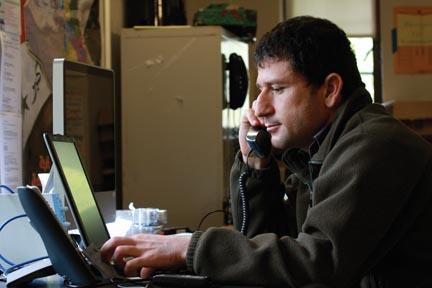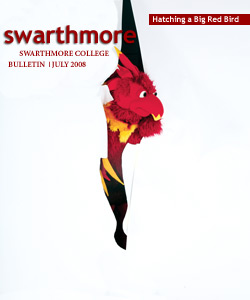Beyond Words
One evening in summer 2006, I was in my apartment in Sulaimanya, a city in northern Iraq, when I received a call from an unknown number. The voice on the other end introduced herself as a reporter for War News Radio at Swarthmore College. She was doing a story about business and corruption in the Kurdish region, and she wanted to get my views on the subject. That’s when I first heard of something called War News Radio.
I came to the United States in August 2006 to study journalism at Columbia University. In the past several years, I had worked as an interpreter with many American and European journalists in Iraq. As a reporter, I also provided live coverage of the news and daily life of people from Baghdad for several radio and TV stations in the western world.
The situation in which I worked in Baghdad was very dangerous. Every time I left my apartment for work, I exposed myself to the risk of death. So after years of working intensively in such an environment, coming to the United States was a break from the heavens.
I finished my courses at Columbia and got a master’s degree but soon began to ask myself, “What is the use of this degree if I am not in Iraq to work as a journalist?” I thought of returning to Iraq, but given the everyday killing in Baghdad, it could be a fatal decision.
In the midst of this thinking, I received a message from War News Radio about the possibility of working with them. After I visited Swarthmore for only two days and worked with the students who are involved in the program, I wanted the job.
My love for radio dates back to when I was still a child, and working in sound is what I did in Iraq. I realized that with War News Radio, I could make up for my being unable to be in Iraq and continue to help by reporting on the situation.
There are certainly many media outlets in this country that cover the news of Iraq and Afghanistan. But War News Radio’s goal is to go beyond that regular news coverage and shed light on the daily life of Iraqis and Afghans as they struggle to survive. We call people in those countries every day and bring their voices—voices that are rarely heard—to American audiences.
In almost every story we write, there are words such as “bombed,” “dead,” or “killed.” I hope the students stop every time they come across these words and think about it for a while because they are talking about the death of real human beings. We must not see them only as words in the news.
 Email This Page
Email This Page
